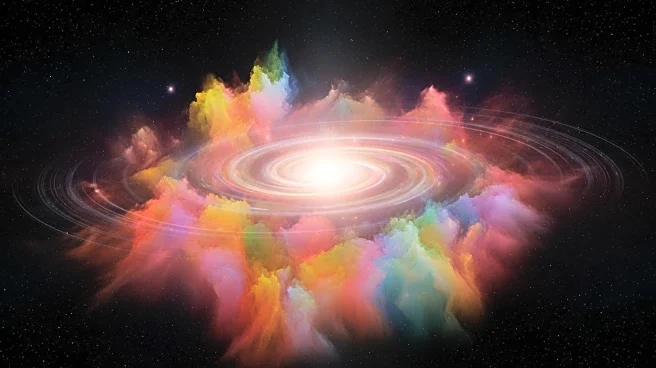What's Happening?
A new theory challenges the standard Big Bang model by suggesting that gravitational waves, predicted by Albert Einstein, could have been the catalyst for the formation of cosmic matter, leading to the creation of galaxies, stars, and planets. This theory aims to eliminate the speculative parameters of the inflationary paradigm, which has been the prevailing model explaining the universe's rapid expansion. According to Raúl Jiménez from the University of Barcelona, the new model posits that natural quantum oscillations of spacetime were sufficient to trigger density differences, ultimately forming cosmic structures. The model relies on a single energy scale, removing the need for hypothetical fields and particles like the 'inflaton' field, which has been used in some Big Bang models to explain rapid inflation.
Why It's Important?
The significance of this new theory lies in its potential to simplify our understanding of the universe's origins by reducing reliance on speculative elements. If proven, it could reshape cosmological models and influence future research directions in astrophysics. The theory's elegance and lack of free parameters could provide a more robust framework for explaining cosmic evolution. This could impact how scientists approach the study of gravitational waves and their role in cosmic history, potentially leading to new insights into the fundamental forces shaping the universe.
What's Next?
The theory's validity will depend on observational evidence, particularly measurements of the cosmic microwave background and primordial gravitational waves. These data could confirm or refute the model, providing a testable framework for future astronomical research. If successful, the model could redefine our understanding of cosmic inflation and the universe's structure, prompting further exploration into gravity and quantum physics.
Beyond the Headlines
The proposed model challenges the flexibility of current cosmological theories, emphasizing the need for scientific models to predict rather than adapt to observed data. This approach could lead to a more rigorous understanding of the universe's origins, highlighting the importance of gravity and quantum physics in cosmic evolution.











